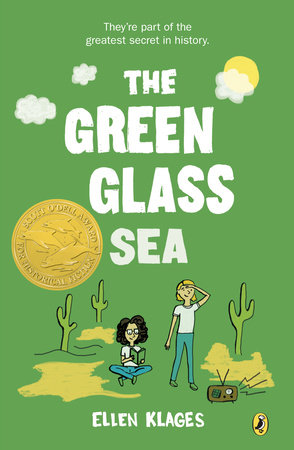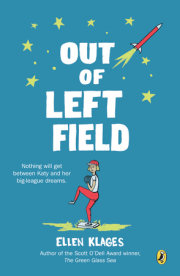Treasure at the DumpDewey took a final bite of her apple and, without taking her eyes off her book, put the core into the brown paper sack on the ground next to her. She was reading a biography, the life of Faraday, and she was just coming to the exciting part where he figured out about electricity and magnetism. She leaned contentedly against Papa’s shoulder and turned the page.
Today they had chosen to sit against the west wall of the commissary for their picnic lunch. It offered a little bit of shade, they could look out at the Pond, and it was three minutes from Papa’s office, which meant they could spend almost the whole hour reading together.
“Dews?” Papa said a few minutes later. “Remember the other night when we were talking about how much math and music are related?”
Dewey nodded.
“Well, there was a quote I couldn’t quite recall, and I just found it. Listen.” He began to read, very slowly. “ ‘Music is the hidden arithmetic of the soul, which does not know that it deals with numbers. Music is the pleasure the human mind experiences from counting without being aware that it is counting.’ That’s exactly what I was talking about.”
“Who said it?” Dewey asked.
“Leibniz. Gottfried Wilhelm Leibniz. He was an interesting guy, a mathematician and a philosopher and a musician to boot. You’d like him.”
“Can I borrow that book when you’re done?”
“I don’t think you’d get far,” he laughed. He turned and showed her his book, bound in very old, brown leather that was flaking off in places. The page it was open to was covered in an odd, heavy black type.
“It’s in German,” Dewey said, surprised. That explained why he had read so slowly. He’d been translating. “So is Leibniz a Nazi?”
“Hardly. He died more than two hundred years ago, long before there were any Nazis.” He shook his head. “Don’t make the mistake of throwing out a whole culture just because some madmen speak the same language. Remember, Beethoven was German. And Bach, and—”
The rest of his sentence was interrupted by the shrill siren from the Tech Area. He sighed. “Time to go back to my own numbers.” He closed his book, then leaned over and kissed Dewey on the top of her head. “What’re you up to this afternoon?” He stood up, brushed the crumbs from his sandwich off his lap into the dirt, then brushed the dirt itself off the back of his pants.
Dewey squinted up at him. “I think I’ll sit here and read for a while. A couple more chapters anyway. Then I’m going to the dump. Some of the labs are moving into the Gamma Building, now that it’s done, and people always throw out good stuff when they move.”
He smiled. “Looking for anything in particular?”
“I don’t know yet. I need some bigger gears and some knobs and dials. And some ball bearings,” she added after a short pause. “I’ll show you at dinner if I find anything really special.”
“Deal. We’re just analyzing data this afternoon, so I may actually get out at 5:30. If you get home before me, put the casserole in the oven and we can eat around seven.” He tucked his book under his arm.
“Okay.” Dewey watched him walk around the corner of the building, then turned back to her book.
Copyright © 2006 by Ellen Klages. All rights reserved. No part of this excerpt may be reproduced or reprinted without permission in writing from the publisher.





